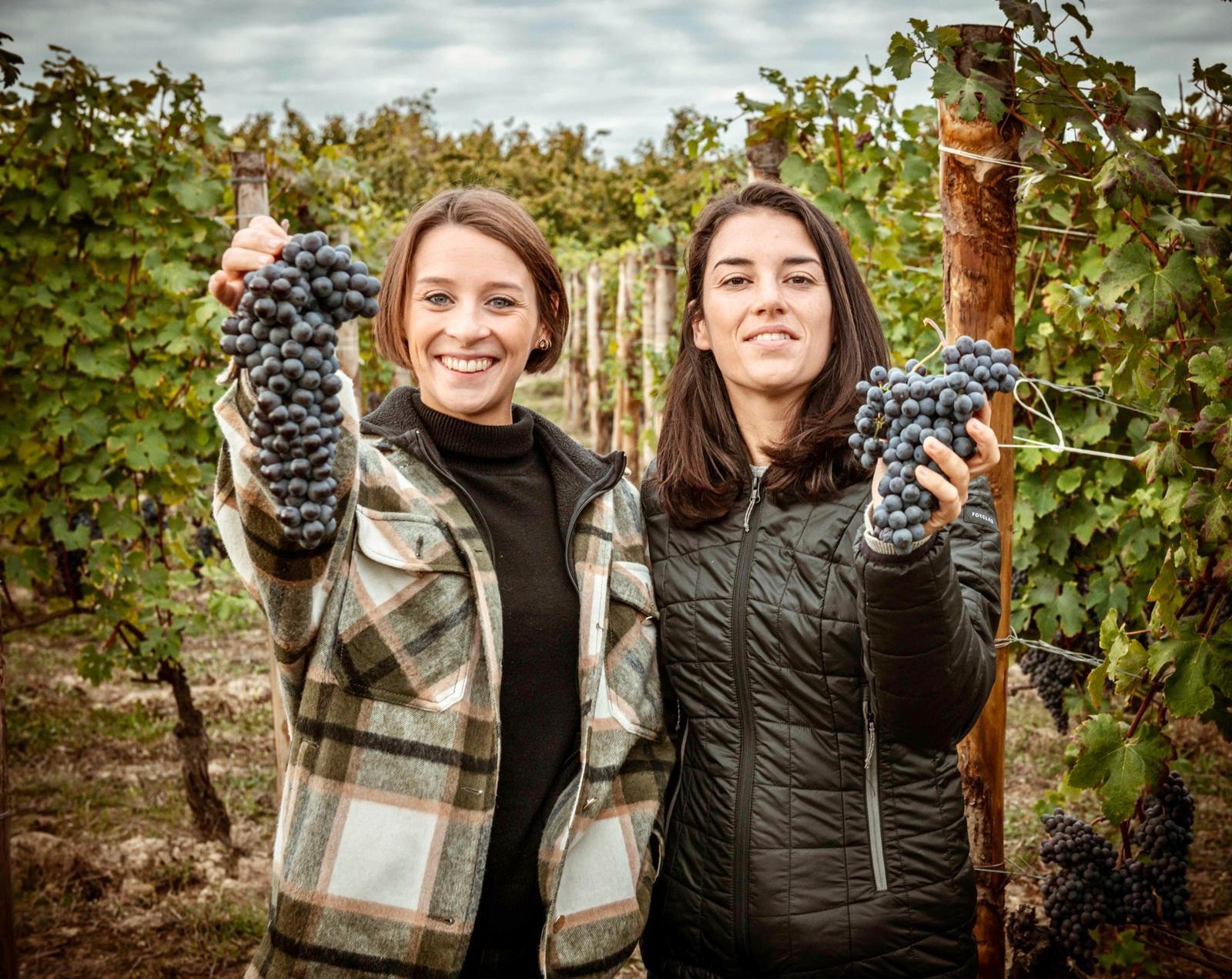Since 2018, the co-founder of the Eataly shops, among others, has entrusted his « young » Barolo estate to his daughters. They now run it with complete freedom, uninhibited, but with respect for local traditions. The result? Wines which, while respecting the canons of the vineyard, show a touching freshness and delicacy. Here are some explanations…
As early as 2008, your father set about converting the newly acquired estate to organic farming: why this decision? It wasn’t really the Barolo way, was it?
No, Organic wasn’t definitely “popular” 16 years ago but my father had a vision and wanted to step into the Barolo region with a meaningful purpose. He wanted to make sure that Serena and I, his daughters, could work in a cleaner and healthier environment. He was also highly convinced of the potential of the site that he got and knew that only by farming it at the highest level possible he could have expressed and honored that terroir in the best way.
You joined the family estate in 2011 and again in 2013: why this choice?
Serena and I had total freedom in deciding what we wanted to do professionally. We both had the chance to study at university and travel a little bit but every time we got back to the winery we would feel the call to stay and fell more and more in love with agriculture and winemaking until we decided to make this our job and life.
In 2018, your father entrusted you with the reins of Agricola Brandini: is it common in the region to do this so quickly?
It is not common, our father has always been a very inspiring businessman and had a very modern and different take on this. He is still very involved and supports us every day but gave us a lot of responsibilities and creative freedom in the style of the wines.
How do you divide the work between the two of you today? Who does what?
We are both fully involved in farming and winemaking decisions. Off season, I take care of sales and travel quite a lot to promote the winery while Serena manages the estate and the production.
You’ve made respect for nature one of your key priorities. How does this work in practice in the vineyards and in the winery? What practices have you put in place on both sides?
We try to work in unison with Mother Nature, limiting our impact while producing the best quality fruit and wine possible. In everyday work it means that we try to reduce treatments as less as possible in the vineyards and apply techniques that are helping biodiversity, soil nourishment and reduce our impact (cover crop, crimping the grass, no tilling, natural treatments, etc…). The main benefit of all these work in the vineyards is that we usually bring home the best quality grapes so that our intervention in the cellar is minimal. We only do spontaneous fermentation and follow traditional methods while being 100% energy independent thanks to solar panels.
All these practices are in stark contrast to local customs. But you say that traditions continue to guide you: in what ways?
Following the tradition of our region is crucial for us in order to honor the style and work that the generations before us had and did. With that said, we live in the present and try to apply new techniques and improve where we can in order to deliver to the next generation a better environment.
This deep-rooted relationship with nature is becoming increasingly complex with climate changes. Are they particularly strong in your region? How do you adapt?
Piemonte has been hit by climate change as any other wine region in the world. Honestly speaking, our strong relationship with nature has helped us navigating this change a bit in being proactive towards it. One of the biggest struggles is that Piemonte has always been a “4 seasons” climate with strong snowy winters, mild wet springs, short and warm summers and foggy autumns. Unfortunately in the last decade we have seen all of this shifting and getting mixed up. We needed to adapt our work in the vineyards to survive heat weaves, droughts, strong storms, etc… We are confident though that our vines are strong and resilient and if we give them the care that they need, they will deliver wines of great balance and more immediacy.
The altitude of the domain is an advantage in this respect, isn’t it?
When my father got the estate 16 years ago, the Brandini area and in general the occidental side of La Morra was not considered the best to grow grapes because of high altitude and exposure to the Alps. Around us there still were a lot of woods and forests. Nowadays everything as drastically changed and everyone is moving higher and higher, so at the end it was very serendipitous!
Your wines are said to have a certain freshness, a certain elegance, even joy, from an early age. Is that your trademark? How would you define the Brandini style?
I would definitely define our style like that. We always try to achieve wines of great elegance and finesse with good vibrancy and lift.
Today, you produce Barolo of course, but also Dolcetto d’Alba, Barbera d’Alba, Langhe, and even Moscato, Alta Langa… Is this diversity your pleasure? Or simply the reflection of a very diverse terroir? Or both?
Our focus is and will always be nebbiolo but our region is extremely rich of amazing varieties that complete the picture and are fun to drink so, why not?!

